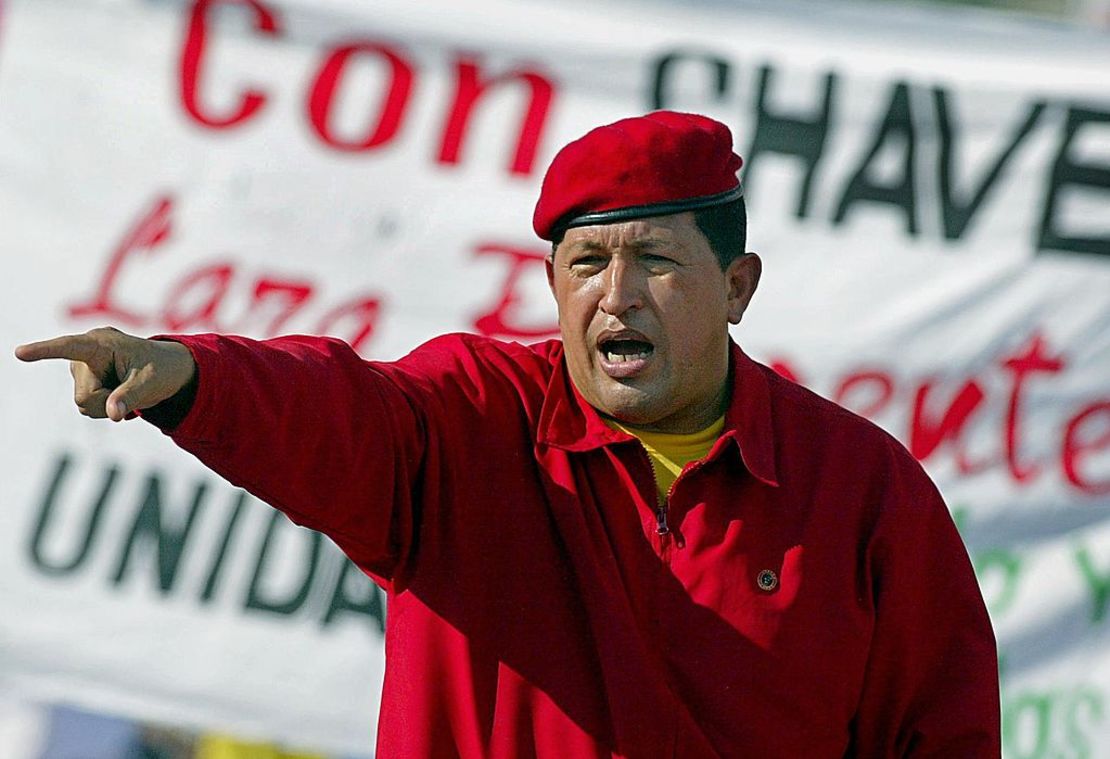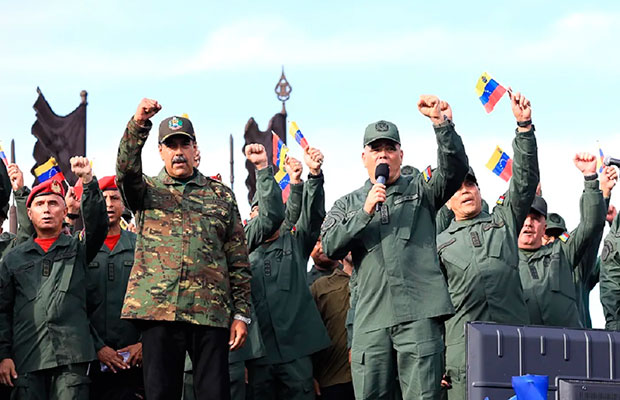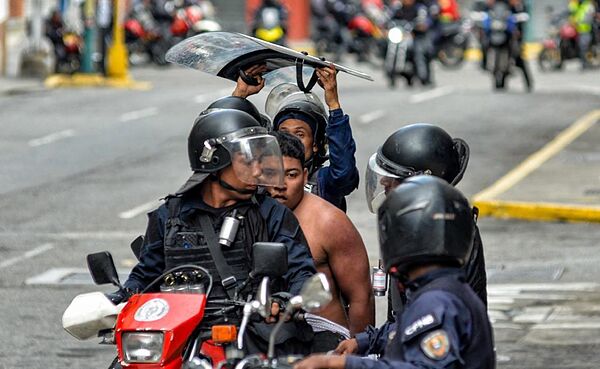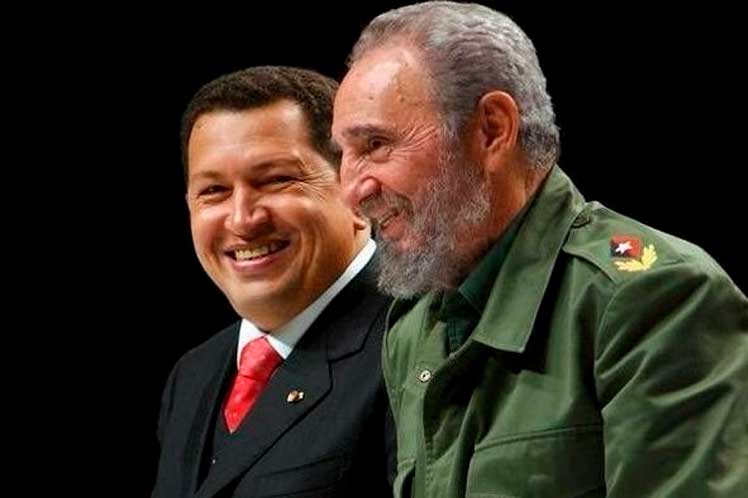How did Venezuela go from democracy to modern Soviet totalitarianism?

After the well-known Pact of Puntofijo in 1958, Venezuela experienced a period of political stability and democracy that, combined with oil wealth, turned the country into a prosperous nation that attracted millions of migrants and refugees from all over the world with the promise of honest work for quality of life. However, since 1998 and, after the arrival of Hugo Chavez to power, the political system changedChavismo, which originally called itself nationalist, became a copy of the Cuban regime and has mutated over the last 20 years to become what some analysts and experts define as a modern version of Soviet totalitarianism.
If there is something that political scientists and historians agree on, it is that It is difficult to define the type of government that Venezuela currently has.. Especially since on July 28, Chavez’s heir, Nicolas Maduro, seems to have given a final blow to democracy, after the National Electoral Council (CNE) proclaimed him the winner of the elections without any evidence, while voting records shown by the Venezuelan opposition, led by leader Maria Corina Machado, show that candidate Edmundo Gonzalez was victorious by a wide margin.
“In two decades of disgrace we went from a competitive autocracy with Hugo Chávez (who held elections only because he had popular support) to a tyranny with Nicolás Maduro, whose only tool to maintain power is brute force and terror,” said political scientist Walter Molina in statements to The National.
How did the decline of democracy in Venezuela begin?
Chávez paved the way for what he called 21st century socialism, a government in which he convinced citizens that he was the only man capable of solving the country’s problems, in which he started a struggle between social classes and made Venezuelans dependent on the State. While building a cult of personality, he eliminated everything that represented a threat to his own interests: separation of powers, any kind of civil society, free press, political parties, among others..
Following Chavez’s death in 2013, his successor, Maduro, who lacked his charisma, had to find ways to further consolidate the ruling elite’s hold on power while facing a sharp economic downturn. It was then, in 2014, that his government first turned to violence, terror and brute force to quell the dissidents who took to the streets that year to protest against the economic recession.
As the movement initiated by Chavez was losing popularity, Maduro consolidated the dismantling of the Public Powers that began in 1999 and completely eliminated their autonomy, turning them into executive arms that act at their convenience. Thus, he imprisoned, prosecuted and forced into exile a large part of the Venezuelan opposition, established laws and decrees to further control the population, while empowering his allies to take advantage of the country’s economic resources, increasingly distant from the Venezuelan people, and almost completely buried the free press.
A vital move to consolidate a government threatened by the political, social, economic and even diplomatic crisis was the integrate the Venezuelan military leadership into the regime itselfaccording to historian and economist Edgar C. Otálvora.
In almost three decades, the regime has managed to blend in and mutate in order to remain in power. In its quest to maintain a kind of democratic façade, Otálvora says, Chavismo has allowed citizens to participate in politics, business, and the realm of ideas, but only if that participation does not call into question the system and the leadership of the hierarchy, a circle that has become synonymous with corruption in recent years.
Is the Chavista regime a new version of Soviet totalitarianism?
For political scientist Walter Molina, “the system imposed by Chavismo (a system that goes far beyond simply the regime installed) has elements of Latin American militaristic political caudillismo, demagogic populism and what sociologist Juan Linz defined as Sultanistic regimes, characterized by the personal, arbitrary and despotic power of a leader”.
On sultanistic regimes, Linz noted that they usually come to power with the support of groups, sometimes clearly recognizable, and through fair elections. But as regimes become sultanistic, they lose much of their initial social support and become increasingly dependent on this composition of fear and reward. In the end, the social basis of such a regime is restricted to its clients, the members of the ruling families and their peers. For these, however, loyalty to the ruler derives only from their own interests and not from those impersonal principles.
Even though this concept has many similarities with the current Chavista government, Molina believes “without a doubt that The main recipe that Chavismo has been guided by is Soviet totalitarianismwhich is the phase they are now trying to move towards.”
Soviet totalitarianism, as the type of state implemented in the Soviet Union between 1927 and 1953 is known, was modeled by a leader who had all the powers and who surrounded himself with a cult of personality. This type of regime is characterized by the use of cruelty as a way of imposing fear, by repressing free expression, the excessive use of pro-ideological propaganda and the increase in military power and the idea of being the hegemonic power.
Molina points out that after the presidential elections on July 28, Maduro moved towards this model of government in his efforts to remain in power, even though the Venezuelan opposition claims to have obtained a difference of almost 40 points in the elections.
Over the past month, the Chavista government has intensified its persecution of members of the country’s main opposition coalition, the Democratic Unitary Platform, as well as journalists, activists, human rights defenders and any member of civil society who disagrees with its government.
“The decision of those in power, faced with the proposal to negotiate a peaceful transition, has been to move towards a Soviet-style totalitarianism but with updated applications (just as phones are updated). They have decided deepen state terrorism and social controllegislate the atrocities of the Anti-NGO Law and the Law against Fascism, create concentration camps, remove entire families from the Housing Missions and even suggest that they will move towards a single-party regime,” says Molina.
More than 2,000 people have been imprisoned for protesting against the results issued by the CNE that declared Maduro the winner, figures that to date have not been proven with voting records. In addition, citizens who served as opposition witnesses in the presidential elections have been deprived of their liberty and, using the so-called Law against hate, state security agencies have also gone against those who publish messages on social networks or through text messaging applications against the government.
Maduro even talked about opening prisons in the country only for opponents arrested in recent weeks, a proposal that provoked national and international rejection because it is considered a measure similar to the concentration camps used by the Nazis against Jews in World War II.
“When Nicolás Maduro talks about ‘re-education centers’, the comparison with Nazi concentration camps is wrong; in reality they are Soviet concentration camps, since they are not dividing, persecuting, kidnapping and torturing for racial reasons but purely ideological and power reasons. Stalin and Fidel are the ideal figures of the Chavista-Madurista nomenclature“, Molina adds.
In the opinion of the political scientist, “in Venezuela we live in a tyranny that no longer only has democracy as its enemy but also the Republic itself and everything that this means for a society that they seek to bring to its knees and break, something that they have not achieved despite so much power and so much hatred.”
The historian Edgar C. Otálvora also points out that The Chavista government also has inspiration in Cubaa unicameral Socialist Republic with a single-party system currently led by Miguel Díaz Canel, who took power after the death of Cuban leader Fidel Castro.
“The regime is inspired by Cuba in its form and is related to Cuba in its operation. We must not forget that Chavismo, which originally called itself nationalist, ended up being a copy of the Cuban regime,” he said.
Otálvora said that Maduro was politically trained in Cuba. “He was a Cuban operative under the guise of a bus driver and trade unionist, he was introduced into Chavez’s entourage by pro-Cuban agents, he was promoted and protected by Cuba during Chavez’s government, he was prepared in Cuba to replace Chavez and was imposed by Cuba when choosing the successor. For the current Venezuelan regime, there is no need to look to Russia or China for reference. Just look at Cuba,” he added.
The brutal repression of dissent in Venezuela
The repression that Venezuela has experienced in recent years by the government of Nicolás Maduro is comparable to what was experienced in Chile during the dictatorship of Augusto Pinochetaccording to Walter Molina.
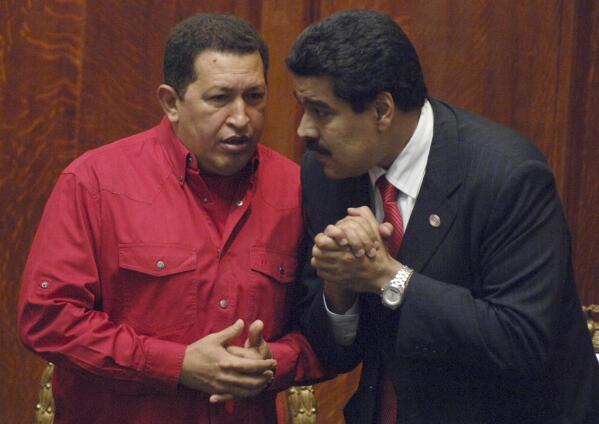
Maduro, who lacked Chavez’s charisma, had to find ways to continue consolidating the permanence of the ruling party leadership in power.
“Nicolás Maduro is doing exactly the same thing that Augusto Pinochet and Jorge Videla did, but with his left hand. That barbarity of the last dictatorships in the Southern Cone is the same barbarity that we Venezuelans are experiencing, with the addition of the largest forced migration in the world; even larger than those of Ukraine or Syria,” he told The National.
For his part, Otálvora considered that in addition to the military dictatorships that have ravaged the continent since the 19th century, the repression of dissent in Venezuela is similar to the heavy hand imposed by the Cuban regime and by the current regime of Daniel Ortega in Nicaragua.
Independent journalism needs the support of its readers to continue and ensure that uncomfortable news that they don’t want you to read remains within your reach. Today, with your support, we will continue working hard for censorship-free journalism!

